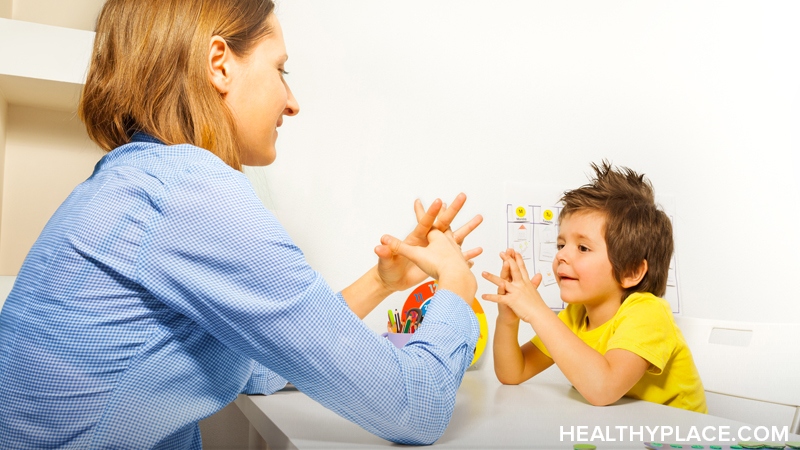Raising Children Diagnosed with a Mental Illness

Raising children diagnosed with a mental illness can be stressful and exasperating no matter how much you love your kids. The parenting frustrations don’t mean that you don’t love your children. Feeling stressed and overwhelmed is actually a product of caring about your children and not knowing if you’re responding to the unpredictable behaviors and emotions “correctly.” Most parents raising children with mental illness want to do their best, but many times they feel that they’re not even close to doing so, that they should do better.
Chances are, you are doing your best every day, moment by moment. For everyone, our “best” fluctuates according to the situation. Sometimes 'good enough parenting' really is perfect parenting. If you have a desire to nurture your children, you’re already on track. The following information about parenting children with mental illness can help you on your journey.
Challenges Parents Face When Raising Children Diagnosed with a Mental Illness
Mental illness in children can be very unpredictable in how and when symptoms flare. It can seem like behaviors and emotions go from mild to loud and out of control in an instant. While there’s usually a trigger, it can be hard to identify in the moment, and it can seem like your child is “acting up” for no reason. Your child’s illness, therefore, can cause stress during an episode and in your overall parenting experience.
A study published in the Journal of Child and Family Studies (Mazur, 2017) highlights common frustrations expressed by mothers and fathers parenting a child with mental illness.
- Helplessness
- Needing parenting support groups and advice about coping with their child’s behaviors and emotions
- Struggling to deal with unwanted input from strangers ("Dealing with Parenting Advice You Don’t Want or Need to Hear")
- The safety and effectiveness of medication plus getting their child to take it
Also, parents informally express experiences that illustrate more concerns:
- Impatience when their child doesn’t cooperate—again
- Barriers in communication that fuel frustrations
- Anger at everyone and no one
- Shame because of their child’s behavior in public
Despite the frustrations, there are ways to help your child and yourself.
Ways to Help Your Child Living with Mental Illness
Children with mental illness need to feel accepted and valued. Sadly, they don’t often get that from their peers at school or even their teachers (because teachers are trying to teach and keep in line an entire classroom of youngsters). When your children can find that acceptance and unconditional love at home, they can do well. Show them that you separate who they are from the illness they live with.
One way to demonstrate that you accept your kids is to take time to listen attentively to them. Talk to them about how they are doing—regarding their symptoms and about anything else. They have interests and talents and are not their mental illness. Listening to them lets them know that.
Sometimes, listening isn’t easy if your child won’t talk or is having difficulty finding words to express the right ideas. Keeping a pillow or other object with a pouch in a dedicated area can help facilitate communication. You and your child can write notes to each other and put them in the pouch. It can become a special way of talking to each other.
Kids with mental illness are also kids. They are growing and constantly adjusting to new stages. Remembering this can give you a fresh perspective on what your child is doing. It is common and understandable for parents to see every expressed thought, emotion, and undesirable behavior as a symptom of mental illness. Not everything, though, is attributable to illness. Some things are simply part of childhood. All kids, mental illness or not, need discipline, love, and opportunities to just be kids.
Making your home environment-friendly for your kids is important, too. When you’re parenting a child with mental illness, set them up for successful behavior with a home that is calm and low-stress. Let your child decorate his room so it’s inviting. Having structure, organization, and a consistent daily schedule is soothing and creates the predictability that helps keep frustration and behavior problems at a minimum.
Mental illness in children can be hard to deal with. Finding support can be invaluable. Support groups in your community and online are great places to vent, learn, and give support.
Melinda Cook is the mother of three children living with mental illness. In Raising Children with Mental Illness (Cook, 2017), she captures a common sentiment among parents in similar situations, whether they have one child or multiple.
“My children are the strongest people I know. They keep going, despite anything and everything that tries to stop them. And I do my very best to help as their mother.”
See Also:
APA Reference
Peterson, T.
(2022, January 17). Raising Children Diagnosed with a Mental Illness, HealthyPlace. Retrieved
on 2026, January 25 from https://www.healthyplace.com/parenting/children-with-mental-illness/raising-children-diagnosed-with-a-mental-illness



